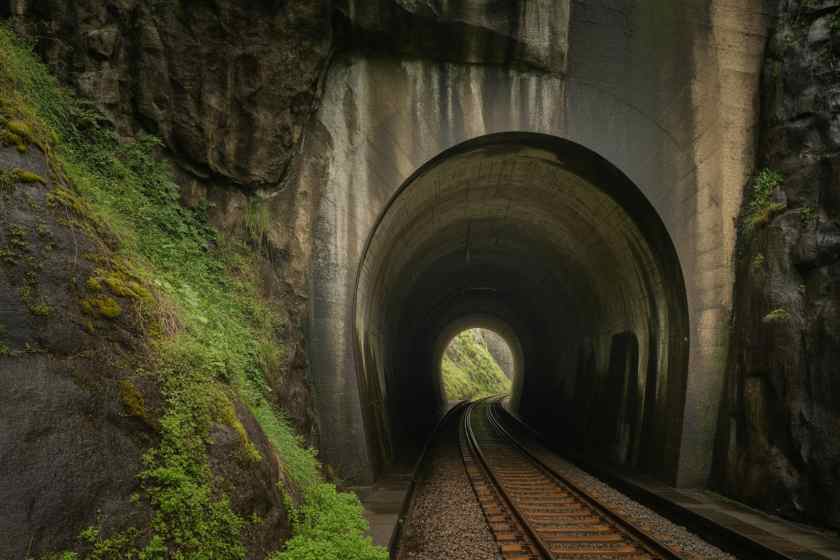Published on
October 8, 2025
It was marked as a monumental event as the last segment of a boring machine that drilled through the earth for 4,500 feet completed the world’s longest rail tunnel under the Benner Pass. This event was a part of the historic commencement ceremony, and the attendees include Austria’s Chancellor Christian stocker and Prime Minister of Italy. The event marked the advancement of rail infrastructure in Europe. This rail tunnel is anticipated to transform the region, reducing travel time and impact on the environment while populating numerous modes of transport that can be available.
A Major Milestone in European Rail Connectivity
The completion of the Benner Pass Rail Tunnel is a key part in the advancement and development of Europe’s high-speed rail network. This rail tunnel is anticipated to enhance the movement of goods and people, solving traffic problems in the northern parts of Italy and Austria. The Alps will no longer be a barrier in seamless travel between the two nations. By transferring large quantities of freight from road to rail, the tunnel will enhance the ease of travel and lower the pollution levels, making the environment much cleaner.
The new rail tunnel will improve freight transport and passenger travel times across Europe. The new tunnel will reduce travel from Munich to Vienna by 2.5 hours and will allow trains coming from Milan to Paris to reduce travel time to 4.5 hours. This improved travel will also improve travel behavior as it will encourage more people to use trains instead of cars and airplanes which is a more environmentally friendly option.
Enhanced Rail Efficiency for Freight and Passengers In and around central Europe, the Benner Pass Tunnel will improve the efficiency of rail travel for both freight and passengers. The new tunnel will also cut the travel times for freight trains as it will allow them to bypass congested routes which will make transport smoother. This will help industries in the manufacturing and retail agriculture greatly because they will be paying lower costs for faster delivery.
In addition, the tunnel will enhance the experience of region travelers, providing an alternative to conventional transport, which is faster and easier. The expected travel time between Vienna, Munich, Milan, and Paris will make rail travel competitive with air travel, with the added bonuses of lower carbon footprint and more beautiful views of the Alps.
Sustainability and The Environment with The Benner Pass Tunnel
The Benner Pass Tunnel highlights an advancement in sustainable infrastructure with the construction of the tunnel. The construction will also help decrease road traffic and carbon emissions, since it will shift a large amount of freight from road to rail. Europe, and the rest of the world has an aim to decrease greenhouse gases in the atmosphere. Rail travel is the most energy efficient method of transport, and the new tunnel is expected to lower the pollution, and concentrate it to the areas of a city which has traffic congestion.
The other tunnel which focuses on sustainability is the rail network, which includes the use of modern electric trains powered by renewable energy sources. This will also help ensure the region has a small environmental footprint, even with the increase in transportation the region has.
Improvement of Rail Links Stimulates Economic and Touristic Developments
On top of freight transport, the Benner Pass Tunnel is likely to have a major positive impact on tourism all over Europe. Faster travel times will allow tourists to explore multiple cities within one trip, boosting cross-border tourism with Austria, Italy, and neighboring countries. Additionally, the quick and easy travel times by train are likely to bring more visitors to the Alps, one of the most visited outdoor activity locations, particularly during the ski season.
Similarly, with more tourists and international businesses, cities like Vienna, Munich, Milan, and Paris are likely to grow economically. Being able to travel between these major European cities within a few hours will promote cultural exchange and strengthen the European Union, improving the relationship between the countries’ economies and societies.
Future Possibilities: Rail Travel Throughout Europe
For Austria and Italy, the Benner Pass Tunnel is absolutely a monumental construction, and, for the rest of Europe, it is testament to the incremental progress in the expanding rail network. With Italy and Austria, Europe recognizes the growing investment towards rail travel and its mobility options. Rail travel in the European Union is a more intricate case, embracing the idea of simultaneous construction and global ecological welfare.
Like the rest of Europe, the expanding high-speed rail network will incorporate the Benner Pass Tunnel, helping improve travel speeds within Europe. More projects in the region will integrate European towns and cities, ensuring they remain fast, environmentally and economically sustainable. With Europe, the Benner Pass project is a template for future construction. It demonstrates modern rail travel and its relation to sustainable travel within Europe.
